Tender Writing for Beginners: Your First Bid, Done Right
If you’re just starting with tenders, you might be wondering:
“How do I actually write one that wins?”
You’re not alone. Writing a tender can feel like stepping into a maze, rules, deadlines, checklists, pressure. But understanding the tender process for beginners is the first step to success.
But here’s the truth: tender writing isn’t rocket science. It’s about process. And once you understand the steps, it gets easier (and way less scary). This beginner’s guide will walk you through the essentials of tender writing.
So let’s break it down. This guide walks you through the essentials of writing a tender response that gets noticed, and gets results. Learn how to approach your first tender bid with confidence.
1. Don’t Just Bid, Qualify the Opportunity
Not every tender is worth chasing. Before you spend hours writing, ask these tender qualification questions:
- Does this fit our services?
- Can we meet the requirements?
- Is the budget realistic?
Winning tenders start with smart decisions. Choose your tender opportunities wisely.
2. Know the Buyer Better Than They Expect
Research the tender buyer. Google them. Read their mission. Study past contracts. What are they struggling with? What do they care about? Understanding the buyer’s needs in tendering is crucial.
Use that insight to shape your tone, examples, and structure. This is how you make them feel, “This team gets us.” Tailor your tender approach to resonate with the client.
3. Read the Tender Pack Like a Hawk
Every word in the tender document matters. Miss a formatting rule? You’re out. Submit 10 minutes late? You’re disqualified. Pay close attention to tender documentation details.
Download everything. Highlight deadlines. Build a checklist. And don’t make assumptions, read the fine print. Meticulous review of the tender pack is essential for compliance.
4. Build Your Bid Like a Project Plan
Great tenders don’t happen by accident. Use a tender timeline:
- Assign writers to each section
- Set internal deadlines
- Schedule time for review
Treat your bid like a deliverable, with milestones and accountability. Implement effective tender project management.
5. Nail the Executive Summary
This is your trailer. Your elevator pitch. Your “here’s why we’re perfect” section. Craft a compelling tender executive summary.
Make it snappy. Focus on benefits. Show them you understand what they want, and that you’re ready to deliver. Highlight your key strengths in the tender introduction.
6. Answer the Question (and Only the Question)
Tender questions are specific for a reason. Don’t waffle. Don’t wander. Don’t recycle content. Provide direct and relevant tender answers.
Use the buyer’s language. Mirror their priorities. Keep your answers tight, clear, and structured. Ensure your tender responses directly address the requirements.
7. Say What Makes You Different
What’s your edge? Maybe it’s speed. Or your sector experience. Or your customer retention rate. Clearly articulate your unique selling propositions in tenders.
Spell it out clearly. Don’t just blend in, give them a reason to remember you. Showcase your tender differentiators effectively.
8. Use Proof, Not Promises
Anyone can say “we’re excellent.” Few can prove it. Support your claims with evidence in tender writing:
- Case studies with outcomes
- Real performance stats
- Testimonials with names and context
Your goal: build trust with facts. Use proof and examples in tender responses.
9. Edit Ruthlessly. Proof Like a Pro.
One typo won’t lose the bid, but 20 might. Ensure thorough tender editing and proofreading.
Read your tender out loud. Check it with fresh eyes. And ask someone who wasn’t involved to review it. Clean writing equals confident impression.
10. Hit Submit Like a Boss
Submit early. Double-check the portal. Upload the right files. Tick every box. Ensure correct tender submission procedures.
Your tender could be perfect, but if it’s late or mislabelled, it won’t even be read. Pay attention to the final tender submission checklist.
Final Thoughts on Your First Tender
Winning tenders don’t require genius. They require:
- Good planning
- Clear writing
- Buyer insight
- Solid proof
Use this guide as your playbook, and you’ll go from “we should apply” to “we got the contract.” Follow this tender writing guide for beginners to improve your chances.
Want help writing tenders that win? That’s what we do. Let’s chat about your tender writing needs.
